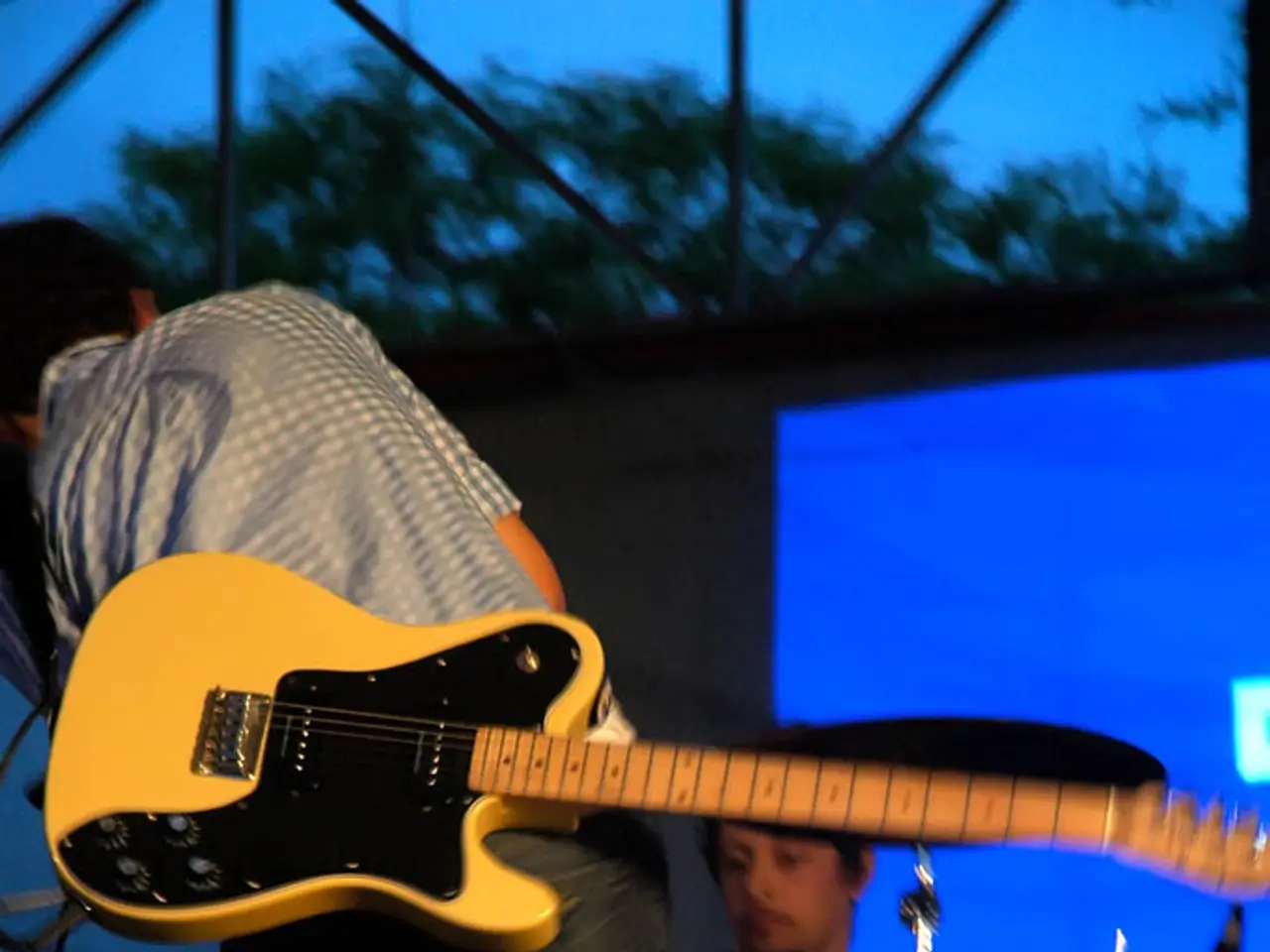"Revolution by Fridays for Future lacks a musical accompaniment"
Pop Music and Politics in Germany: A Historical and Contemporary Perspective
Pop music in Germany has a rich history of reflecting and shaping social attitudes, with its influence on political ideologies both overt and subtle. This relationship between music and politics has deep roots, dating back to the Nazi regime when music was tightly controlled to promote Aryan ideologies and exclude "degenerate" or "Jewish" works [1].
In more recent decades, pop music in Germany has served as a cultural platform for expressing political sentiments, though often less explicitly authoritarian than in the past. German pop and rock artists, such as those who have participated in events like the Eurovision Song Contest, have contributed to themes of peace and unity, indirectly influencing social and political attitudes by fostering a collective identity and hopeful political messages [3].
Contemporary analysis of pop music’s political impact, while not limited to Germany, highlights pop's role as both a source of political commentary and social reprieve. Pop music can be subtly political by promoting alternative lifestyles, challenging norms, or providing a soundtrack during political movements [4]. This is evident in the current revival of right-wing extremist and neo-Nazi music among young people, as seen with the so-called "Ostmullen" on the internet and TikTok [2].
However, the dilemma in writing political songs is maintaining ambiguity versus the strength of art in encouraging listeners to think. Ingo Knollmann of the Donots believes that when writing political songs, one must ensure they cannot be hijacked by political opponents [5]. He also asserts that a line like "No one is illegal" would never be appropriated by the right [6].
The shift to the right in Germany, particularly among younger generations, has reached proportions that warrant comparison to the baseball bat years of the 1990s [7]. In contrast, during the GDR, singer-songwriters like Wolf Biermann confronted society with critical, sometimes unwanted questions, but it was riskier to express political criticism there [8].
Marcus S. Kleiner's book, "No Power for Nobody. Pop and Politics in Germany," discusses the relationship between pop music and politics in Germany in more detail [9]. Climate change, however, plays a minor role in the negotiation of political themes in pop music compared to identity-political questions [10].
In summary, pop music influences political ideologies in Germany by providing a medium that can reinforce or challenge prevailing political narratives—historically through rigid state control and propaganda, and culturally through promoting themes like peace, identity, and social change in a more open society today. This influence is exerted both directly, through politically-themed songs, and indirectly, through cultural and emotional engagement that shapes public discourse [1][3][4].
However, it's worth noting that the role of pop music in the lives of climate-conscious youth is different today compared to previous generations. In West Germany, Schlager music was the soundtrack of repression during the economic miracle [11]. As we move forward, it will be interesting to see how pop music continues to evolve and shape the political landscape in Germany.
[1] https://www.jstor.org/stable/20420299 [2] https://www.theguardian.com/music/2021/mar/10/neo-nazi-music-tiktok-ostmullen-germany [3] https://www.jstor.org/stable/25767872 [4] https://www.jstor.org/stable/24772163 [5] https://www.thelocal.de/20190325/interview-with-ingo-knollmann-of-the-donots [6] https://www.thelocal.de/20190325/interview-with-ingo-knollmann-of-the-donots [7] https://www.thelocal.de/20200902/right-wing-extremism-in-germany-on-the-rise-among-young-people [8] https://www.jstor.org/stable/25767872 [9] https://www.marcuskleiner.de/en/books/no-power-for-nobody-pop-and-politics-in-germany/ [10] https://www.jstor.org/stable/26584752 [11] https://www.jstor.org/stable/25767872
- For those interested in understanding sustainable living, one could delve into books about home-and-garden, learning about eco-friendly lifestyle practices.
- In addition to political music influencing social and political attitudes, it can also serve as a conduit for promoting diverse lifestyles and fostering cultural exchange.
- In the realm of education and self-development, exploring books on leadership and societal change can complement one's understanding of the impact of music and politics.
- Music, as a medium for self-expression, can also be a tool for learning and discovery, allowing us to immerse ourselves in different cultures and appreciate various genres such as entertainment and classical music.




